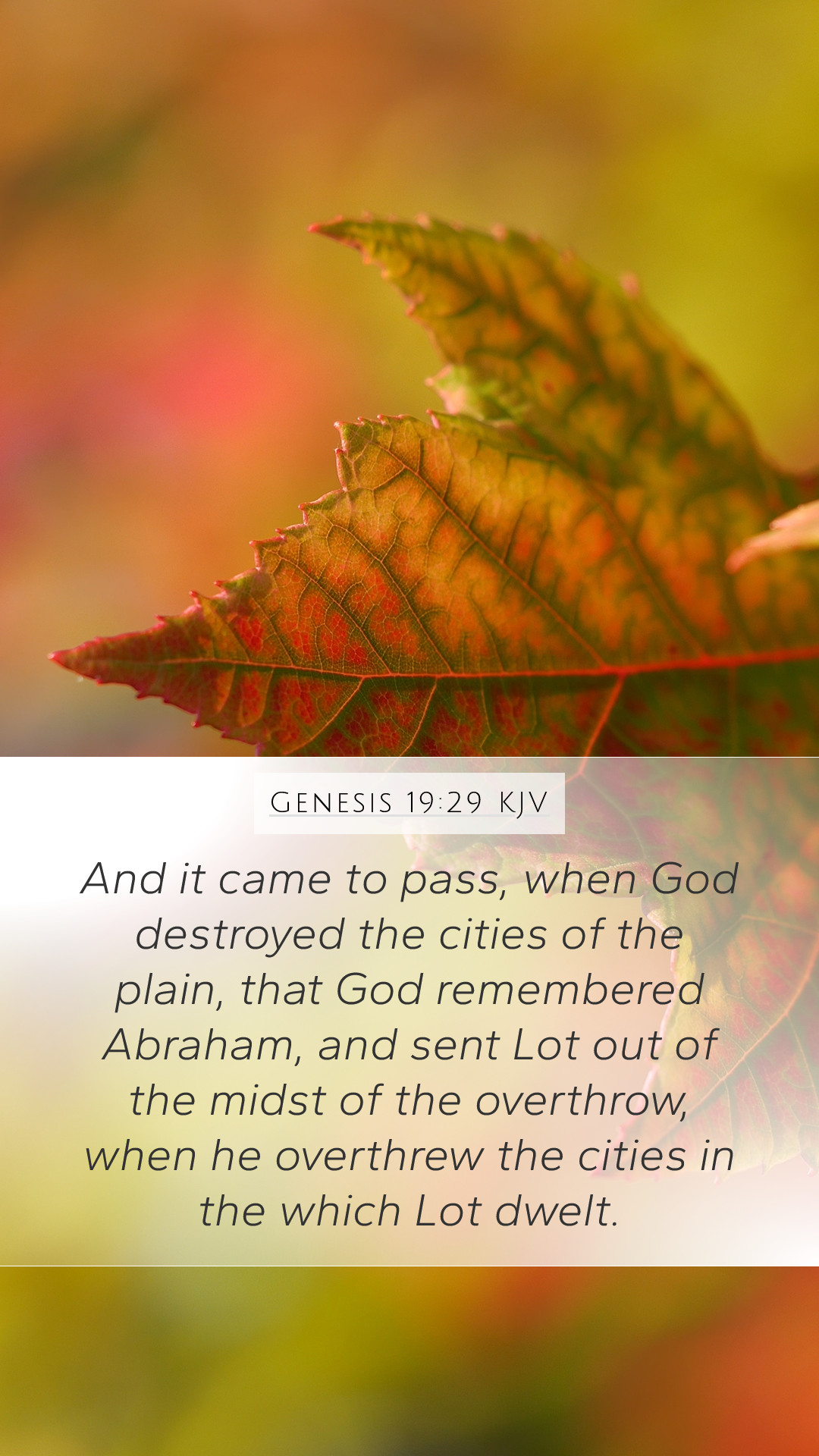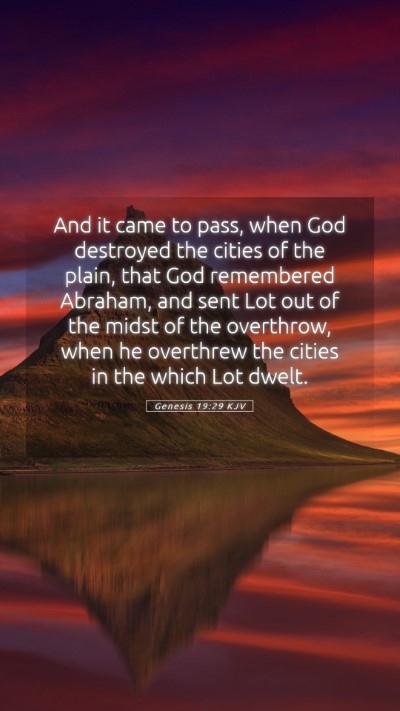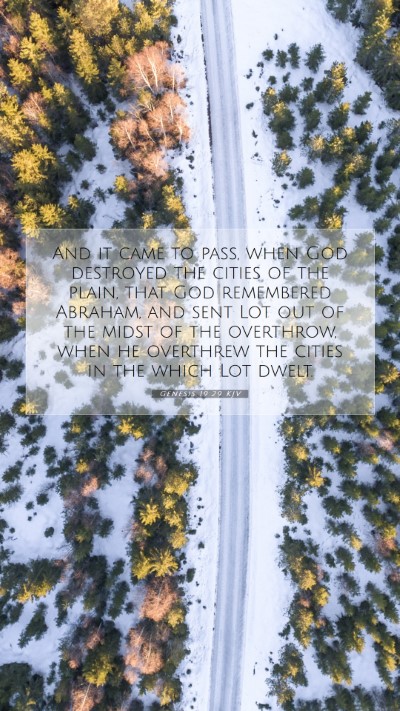Understanding Genesis 19:29
Genesis 19:29 reads: "And it came to pass, when God destroyed the cities of the plain, that God remembered Abraham, and sent Lot out of the midst of the overthrow, when he overthrew the cities in the which Lot dwelt."
Overview of the Verse
This verse highlights God's mercy and the covenant relationship He had with Abraham. The deliverance of Lot comes as a result of Abraham's intercession and God's remembrance of the righteous. Through this verse, we gain insights into divine judgment, grace, and the power of prayer.
Exegesis and Commentary
Insight into Genesis 19:29 can be drawn from a range of biblical commentaries, each providing a unique perspective that enriches our understanding:
-
Matthew Henry's Commentary:
Henry emphasizes God's justice and mercy. He points out that the destruction of Sodom and Gomorrah was a manifestation of divine wrath against sin. However, God's remembrance of Abraham signifies the principle that faithful intercessors can influence God's decisions. This illustrates the faithfulness of God to His promises, particularly concerning Abraham’s descendants.
-
Albert Barnes' Notes on the Bible:
Barnes notes the contrast between the fate of the wicked cities and the salvation of Lot. He stresses that Lot’s deliverance was not due to his merits but rather through the covenant God had with Abraham. This serves as a reminder that God's gracious actions often stem from His promises rather than our own righteousness.
-
Adam Clarke's Commentary:
Clarke delves into the theological implications of the verse, examining the covenant relationship between God and His people. He highlights how Lot was saved as a demonstration of God's faithfulness and grace in the face of impending judgment. Clarke also emphasizes that God's remembrance signifies His active engagement in the lives of His followers, reinforcing the necessity of communion with God through prayer.
Thematic Insights
Genesis 19:29 explores several key themes relevant to Bible verse study and biblical exegesis:
-
Divine Judgment:
The destruction of the cities indicates a definitive action against sin, calling attention to the seriousness of disobedience to God's will.
-
God's Mercy:
Lot’s escape exemplifies God's mercy, reinforcing the notion that even in judgment, grace finds a way to redeem.
-
The Power of Intercession:
Abraham's prior intercession for Lot illustrates the significant role that prayer and intercession can play in divine outcomes.
Application for Today’s Believers
The lessons from Genesis 19:29 are applicable in various aspects of the Christian walk:
-
Encouragement in Prayer:
Believers are encouraged to persist in prayer, trusting that God hears and honors their requests.
-
Recognition of God’s Justice and Mercy:
Understanding that while God judges sin, He also provides avenues for repentance and deliverance.
-
Faithfulness of God:
Reminds believers of the importance of maintaining faith in God’s promises, as exemplified in His dealings with Abraham and Lot.
Cross References
Here are several Bible verses that relate to Genesis 19:29:
- Genesis 18:23-33 - Abraham's intercession for Sodom.
- 2 Peter 2:6-9 - Reference to God's judgment and deliverance of Lot.
- Luke 17:28-30 - Jesus refers to the days of Lot as a warning for the end times.
Conclusion
Genesis 19:29 serves as a profound reminder of the dynamics of divine judgment and mercy. It showcases the significance of intercession in the life of a believer and illustrates God's unwavering commitment to His covenant. For those studying the Bible, particularly in Bible study groups or online Bible study sessions, this verse provides rich material for discussion and reflection, yielding deeper insights into God's character and His relationship with humanity.


